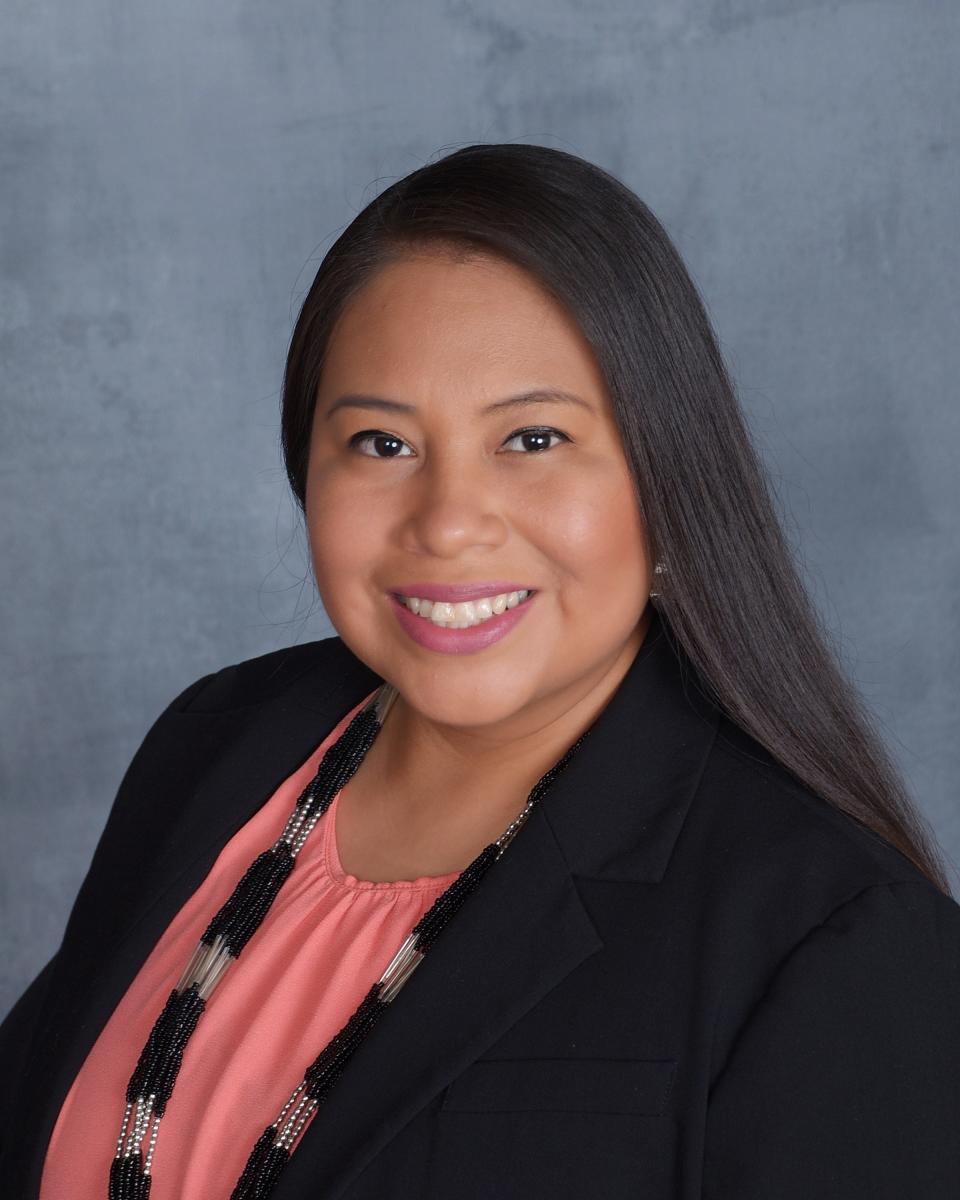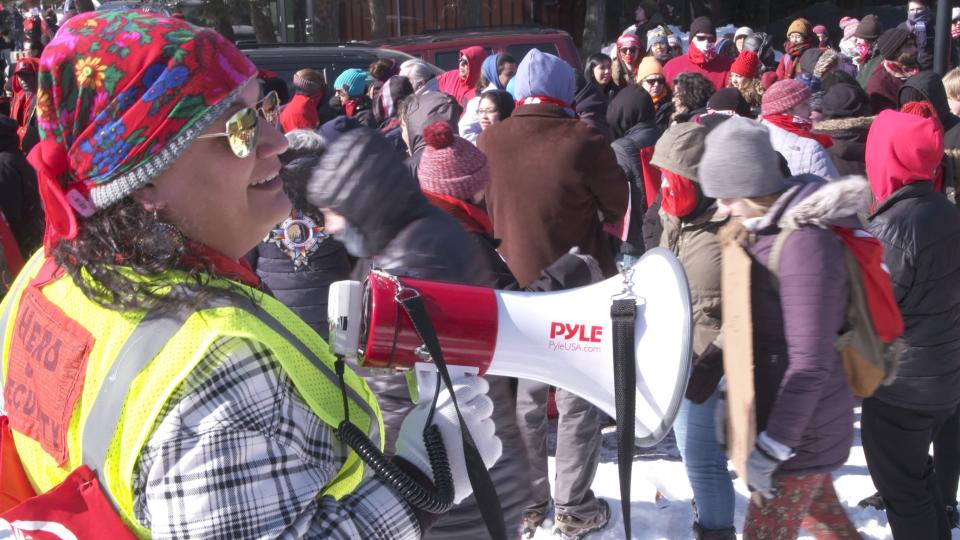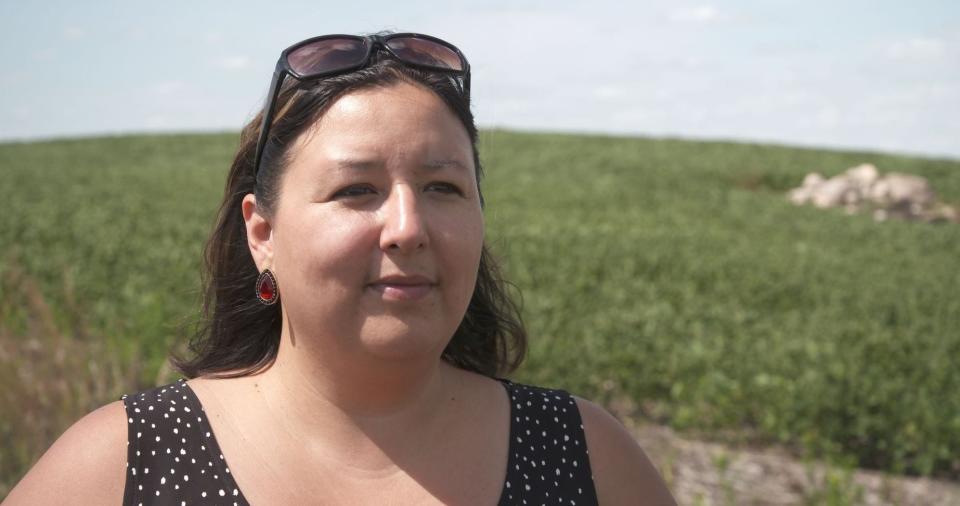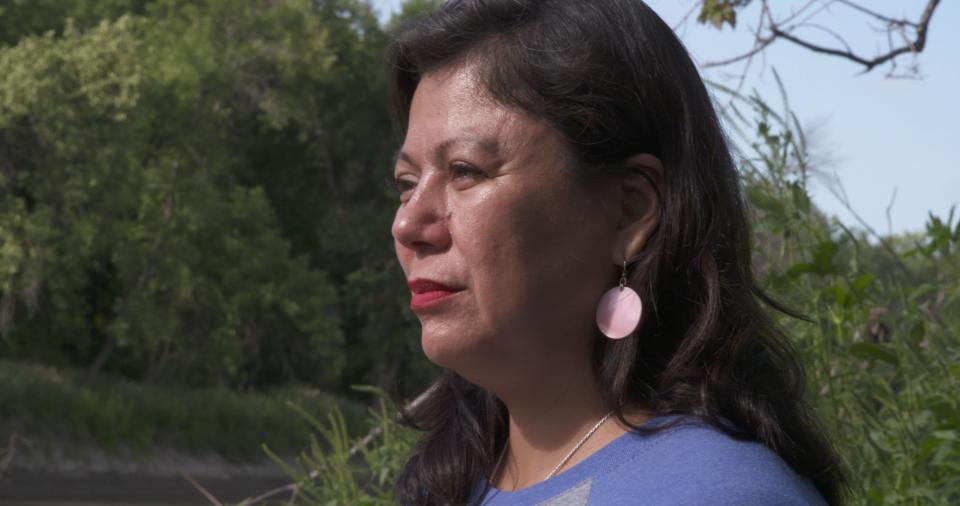'Bring Her Home' documentary on MMIW set for broadcast on PBS
- Oops!Something went wrong.Please try again later.
GALLUP — When Leya Hale set her sights on directing a documentary about the epidemic of missing and murdered Indigenous women, she turned to three Native women to tell their stories of healing and empowerment as they seek answers and solutions.
Hale's film, "Bring Her Home," focuses on efforts by artist Angela Two Stars (Sisseton Wahpeton Dakota), activist Mysti Babineau (Red Lake Nation) and North Dakota state Rep. Ruth Buffalo (Mandan, Hidatsa and Arikara Nation) to address MMIW in Minnesota and in North Dakota.
In preparation for the project, Hale spent hours watching films about MMIW and saw a common thread of how the issue afflicts lives on reservations and the gap in statistics and in jurisdiction and decided her film will present the point of view from those living in urban Native communities.
More: Navajo Nation marks two years of the pandemic with prayers, proclamation

This includes shedding light on the invisibility that Native families face by law enforcement when reporting missing female relatives.
"There's no direct action or immediate action," Hale said. "We never see ourselves on the nightly news when it comes to Native women going missing, but as soon as a white woman goes missing, you see her all over the country."
Two events that unfold in the film are the 2020 MMIW awareness march in Minneapolis and the bill proposed to Minnesota lawmakers in 2019 to establish an MMIW task force.
The Sisseton Wahpeton Dakota and Diné filmmaker said she relates to the urban setting, having been raised by her Diné father and paternal grandparents in southern California. She now resides in the Minneapolis and St. Paul area.

Her parental grandmother clan is Kinlichii'nii (Red House People), and her parental grandfather clan is Tódík'ózhí (Salt Water). She has family on the Navajo Nation in Oak Springs, Arizona.
By watching the film, she hopes viewers develop a better understanding about MMIW because it tells the stories of Two Stars, Babineau and Buffalo through the personal and intimate angle.
"I just felt that as a filmmaker and a storyteller, that I try to make my stories relatable to the viewers," she said.
Hale said she knew Two Stars and Babineau prior to filming because they are all involved in the Native community in the Twin Cities, but knew she wanted to make sure there were different tribes in the film.
So, she reached out to Buffalo after seeing photographs of the state representative wearing her traditional regalia to take the oath of office in December 2018.
After connecting with Buffalo, Hale learned about her involvement in the August 2017 search for Savanna LaFontaine-Greywind in Fargo, North Dakota.
More: Navajo leadership among those who hail reauthorization of Violence Against Women Act
Greywind, a member of the Spirit Lake Nation, was eight months pregnant when she was killed by a neighbor, who cut the baby from her womb.
Her body was found in the Red River, eight days after family members reported her missing.
In October 2020, Savanna's Act became federal law. It requires the U.S. Department of Justice to review, revise and develop law enforcement and justice protocols to address cases of murdered or missing Native Americans.

"I don't think any of them needed too much convincing," Hale said about Two Stars, Babineau and Buffalo. "They were pretty much on board from the beginning. I think it all had to do with trust."
The film is a co-production of Twin Cities PBS and Vision Maker Media with funding provided by the Corporation for Public Broadcasting.
PBS is including the film as part of its programming for Women's History Month.
"I was really excited when they said that they wanted it for Women's History Month because it broadens our reach and it makes it more of a women's issue and a gender violence issue," Hale said.
More: With capital outlay bill signed, San Juan County and Navajo Nation projects get funding

"Bring Her Home" will air on New Mexico PBS Channel 5.1 at 9 p.m. on March 21 and at 10 p.m. on March 27.
Additional showings will be on WORLD Channel 5.4 at 9 p.m. on March 23 and 10 a.m. on March 26. It is also available for streaming on the PBS Video app.
Noel Lyn Smith covers the Navajo Nation for The Daily Times. She can be reached at 505-564-4636 or by email at nsmith@daily-times.com.
Support local journalism with a digital subscription: http://bit.ly/2I6TU0e
This article originally appeared on Farmington Daily Times: PBS to show new missing and murdered Indigenous women documentary

